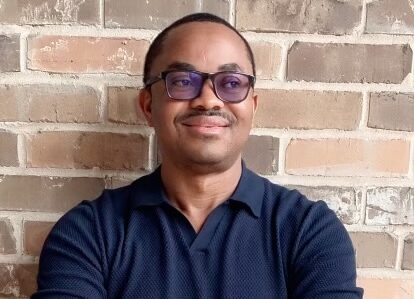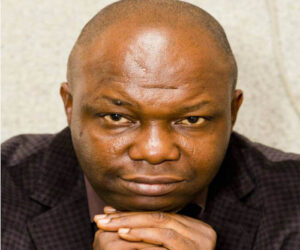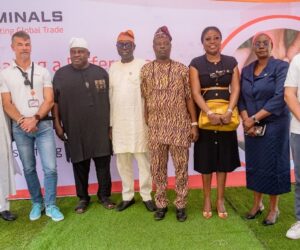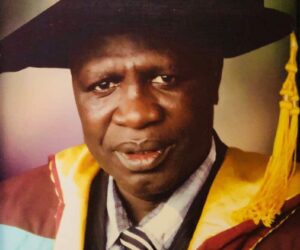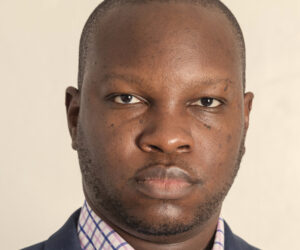That day, all I wanted was a quick dash to Chicken Republic. The mission was simple: rice, chicken, and maybe a few slices of yam with stew to top up the reserves. But in the restless belly of Lasgidi, nothing is ever truly simple. A short trip can easily turn into a full cultural immersion. The moment I hopped into a korope, that miniature bus that looks like it was designed by someone who thought humans were made of rubber, I realized good food wasn’t the only thing on the menu. What I got instead was a buffet of fresh street lingo, served hot and unfiltered.
The conductor, tattered jeans, no shirt, and a voice louder than an “I Pass My Neighbor” generator, bellowed:
“Owa o! E still get space, shift abeg!”
“Shift to where”, I asked? My rib cage was already in close combat with someone’s elbow. In korope, the laws of physics that talks about space and volume being finite simply resign. The word ‘full’ has no meaning and the idea of personal space is a myth. Five people share oxygen meant for two, yet the conductor swears there’s “space.” I told him I was stopping at Chicken Republic.
That was when this tight-jeans guy beside me glanced at my watch and grinned.
“Bros, you just dey play o. Na Chicken Republic you dey rush go? Sapa no dey hold you?”
I laughed. “Bros, hunger na Sapa oga. E no dey drag seat with food.”
The woman on my other side, practically buried under shopping bags like she was relocating, added her spice:
“Oga, shine your eye o. Their aza fit swallow your transfer before chicken reach your hand.”
The whole bus erupted. From the back, a voice shot forward:
“Wahala be like bicycle! If POS bounce you that time, na Fanta bottle you go dey lick air with!”
The laughter nearly shook the bus apart. That’s Lagos for you, turning daily hardship into a traveling comedy show. And once the laughter settled, the real gist began. Politics. Because in Nigeria, politics is like Indomie, always ready.
“This country don show us shege pro max,” a young man declared. “If no be kpali wahala, all of us for don japa.”
“True true,” my tight-jeans neighbor replied. “Na why any Odogwu wey hammer dey always form osha pra pra for club. Azul here, Hennessy there. Meanwhile we dey squeeze for korope like sardine.”
I couldn’t hold back my laughter. Inside that cramped bus, street lingo is more than slang. It’s the diary of a nation, compressed into punchy syllables, spiced with wit, delivered with swagger.
In Nigeria, language is not just communication, it’s a survival kit, a comedy show, a weapon, and sometimes a hug. Nowhere is this clearer than in the dictionary of slang that sprouts like yam tendrils after rain. These words don’t just describe reality; they bend it, remix it, and make it bearable.
Take Legbegbe. On paper, it means “side by side” in Yoruba. Harmless, right? But in Lagos, legbegbe means “check your pockets.” It’s the anthem of pickpockets in crowded buses. And because we never waste tragedy, we remixed it into a club banger. Only in Naija do you dance to a song about thieves while holding your wallet like life support.
Or Odogwu. Traditionally, an Igbo warrior, a man of substance. Today, it’s the nightclub badge of honor. The Odogwu is the man who orders Glenfiddich like he is Obi Cubana, whose agbada sweeps half the dance floor. Respect now comes bottled, not inherited.
But while Odogwu is spraying cash, most of us are battling Sapa. Ah, Sapa, the wicked landlord of Nigerian youth. It comes uninvited, sits in your account, and leaves only kobo crumbs. Sapa is when you add items to Jumia cart just to feel alive. Yet, only Nigerians can turn penury into poetry: “Baby, Sapa hold me, but my love for you still dey premium.”
Hope, however, has a name: Kpali. The almighty passport. With kpali, Edu from Ojuelegba becomes “Edu in the Abroad.” Aunties suddenly remember your name. Uncles who never borrowed you airtime start calling: “My son, don’t forget us.” Kpali is not just paper, it is deliverance, prophecy fulfilled.
But before kpali, before japa, before hammering, there is korope. The moving classroom of Nigerian life. Inside, strangers debate politics with more authority than CNN analysts. One minute it’s fuel subsidy, the next it’s Big Brother eviction. Forget NTA, just ride from Ikeja to Oshodi at rush hour, you’ll graduate with honors.
And then there’s Osha pra pra. Nigerians don’t do average. Our shoes must blind enemies, our dances must scatter ground, our outfits must confuse ancestors. It is drama, flamboyance, excess,all repackaged as style.
The slang dictionary never runs dry. Gbese is debt you can’t pray your way out of. Japa is not just travel; it is escape, vanishing when landlord arrives. Yahoo Yahoo, well, let’s just say Nigerians invented euphemism too. And of course, wahala. Problem, drama, chaos. From Lagos to London, people now say “no wahala.” Like Afrobeats, it has gone global.
Most recently, “No gree for anybody” became the national chorus. Started as resistance slang, it now doubles as everyday stubbornness. NEPA brings five minutes of light? “We no gree!” Petrol price jumps again? “We no gree!” Arsenal loses? Still—“we no gree!”
What’s beautiful is how these words cross boundaries. Hausa boys in Kano shout “Kai!” in frustration. Yoruba touts in Lagos yell “Shine your eye!” Igbo traders hail “Onye ego!” when a spender walks in. The accents differ, but the spirit is the same. Slang is our only national policy that truly unites us.
And like Afrobeats, slang has migrated. “Hammer,” “wahala,” “japa”—they’re on foreign tongues now. Our lingo, like our music, is a cultural export.
But at its heart, slang is not just entertainment. It is therapy. It is how we baptize hardship with humor, how we survive shege pro max with laughter. It is resilience in syllables. In Nigeria, English may be official, but slang is the real anthem, the soundtrack of buses, markets, and street corners.
By the time the bus screeched to my stop, I staggered out like a survivor of a natural disaster. My knees wobbled, my shirt clung to me like second skin. Chicken Republic was steps away, but I realized I had already eaten well. The real meal was inside that korope: hot gist, seasoned with wisdom, garnished with vawulence, and washed down with the endless creativity of Nigerian slang.
When I finally reached the counter at Chicken Republic, I smiled to myself. Hunger had nothing on me, I had already feasted on the greatest meal Lasgidi offers: the streets themselves.
E choke! Eko o ni baje.
Osmund Agbo is a US-based medical doctor and author. His works include Black Grit, White Knuckles: The Philosophy of Black Renaissance and a fiction work titled The Velvet Court: Courtesan Chronicles. His latest works, Pray, Let the Shaman Die and Ma’am, I Do Not Come to You for Love, have just been released. He can be reached@ [email protected]

